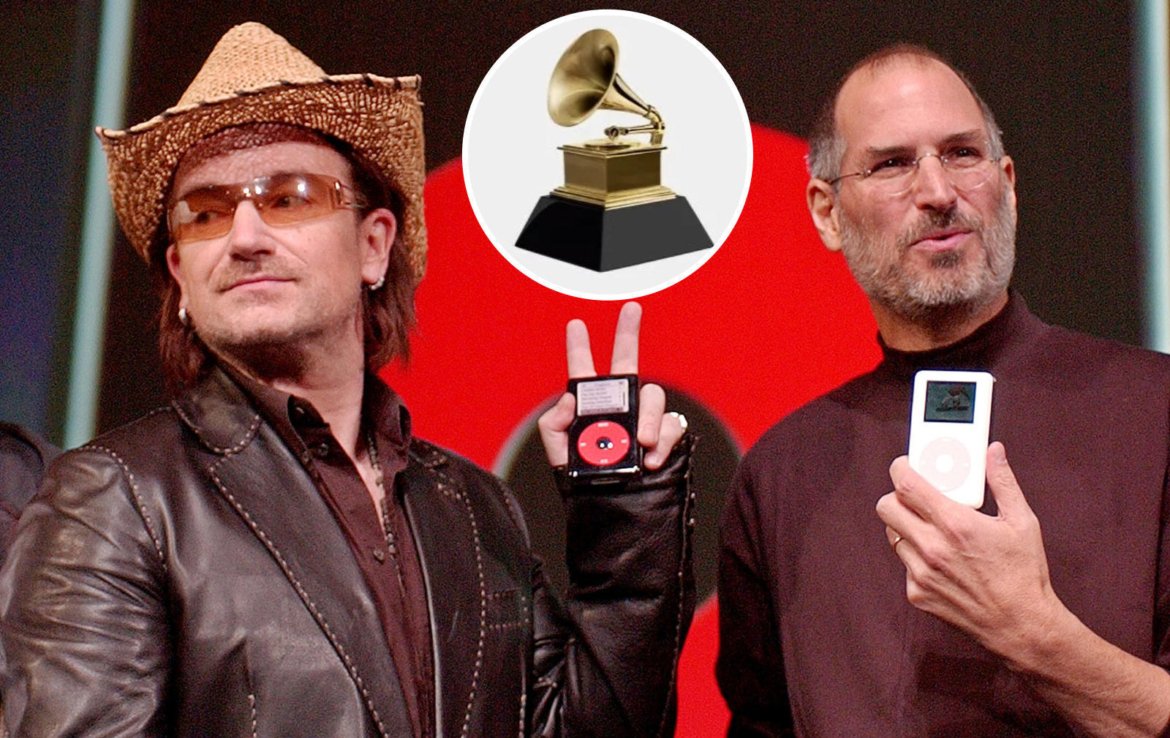In February 2012, months after his death, Steve Jobs joined the ranks of music legends like Beyonce, Quincy Jones, and Stevie Wonder—not for his vocal prowess or instrumental virtuosity, but for revolutionizing how the world experiences music. The Grammy Trustees Award that Apple’s co-founder received posthumously recognized something unprecedented: a tech visionary who never played an instrument publicly had fundamentally transformed the music industry itself.
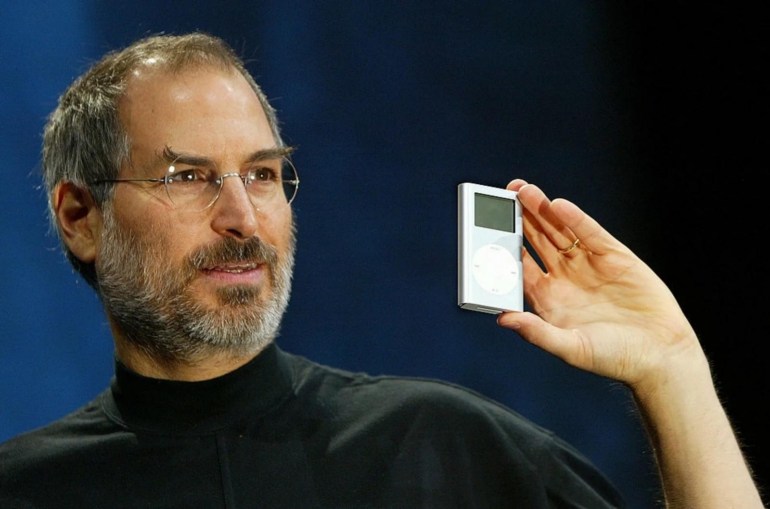
The unlikely music revolutionary
Jobs stood apart from typical Grammy recipients. He never wrote chart-topping songs or performed in packed arenas. His musical contributions came not from a recording studio but from Apple’s design labs, where he envisioned a new future for music consumption. “Steve was a visionary, a mentor, and a close friend. To him, music was everything,” said Eddy Cue while accepting the award on Jobs’ behalf. This passion for music—particularly artists like Bob Dylan and The Beatles—drove Jobs to solve problems the industry itself couldn’t see clearly.
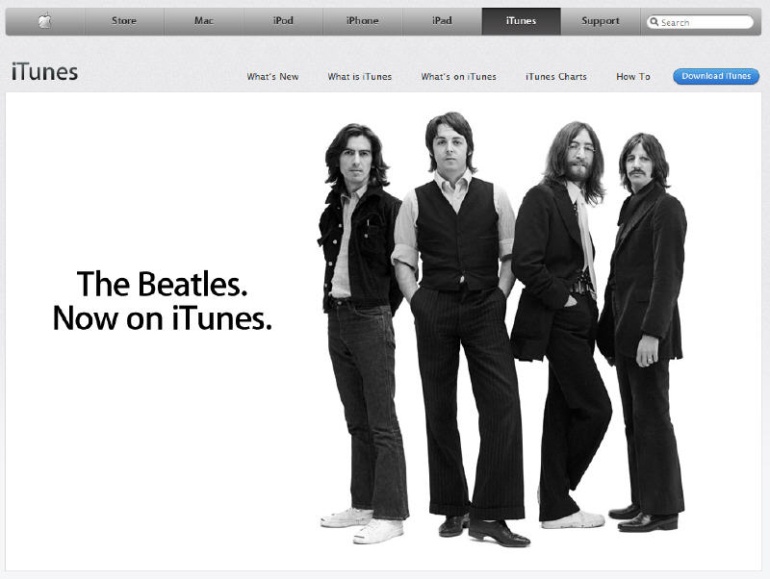
The perfect storm: iPod and iTunes
When Jobs unveiled the iPod in 2001 with its promise of “1,000 songs in your pocket,” the music world was in chaos. Illegal file-sharing through platforms like Napster had exploded, physical album sales were plummeting, and the industry seemed paralyzed by digital disruption.
Jobs’ innovation wasn’t merely technological—it was psychological. While record executives focused on controlling distribution and fighting piracy, Jobs recognized a fundamental truth: people weren’t necessarily opposed to paying for music; they just wanted a better experience.
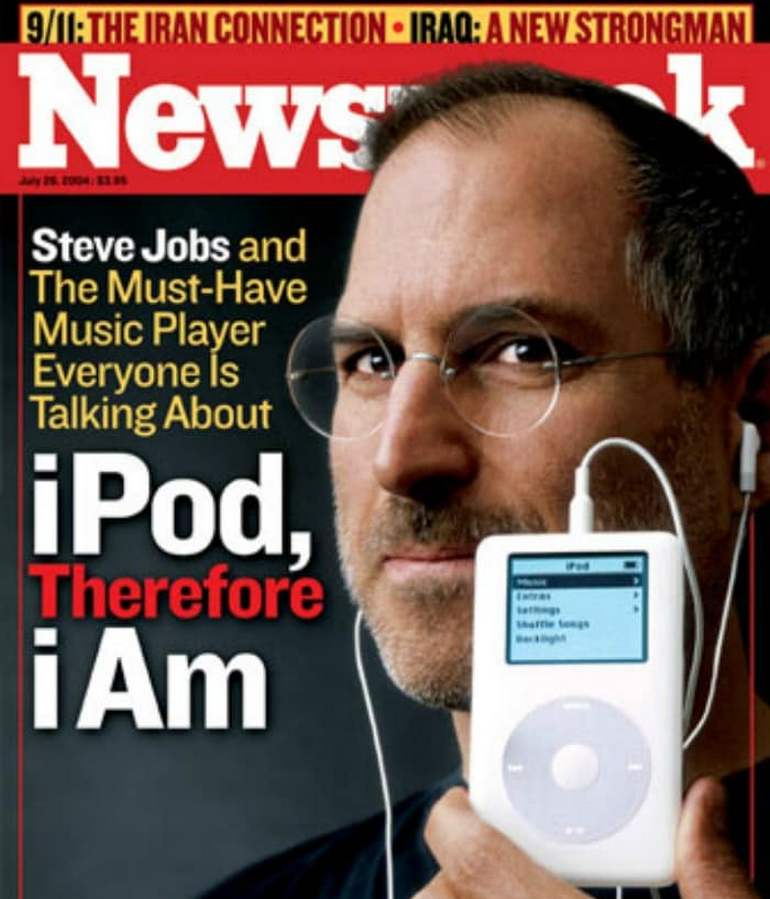
The iTunes Store launched in 2003 with a deceptively simple proposition: 99 cents per song, no subscription required, instant downloads, and freedom from DRM restrictions (eventually). This straightforward approach produced staggering results. In its first year, iTunes saw 30 million songs downloaded. Within just two years, that number exploded to 1.2 billion downloads. By April 2008, Apple accomplished what seemed unthinkable: surpassing Walmart to become America’s largest music retailer. In 2009, total music sales reached an all-time high with 1.5 billion units sold according to Nielsen SoundScan.
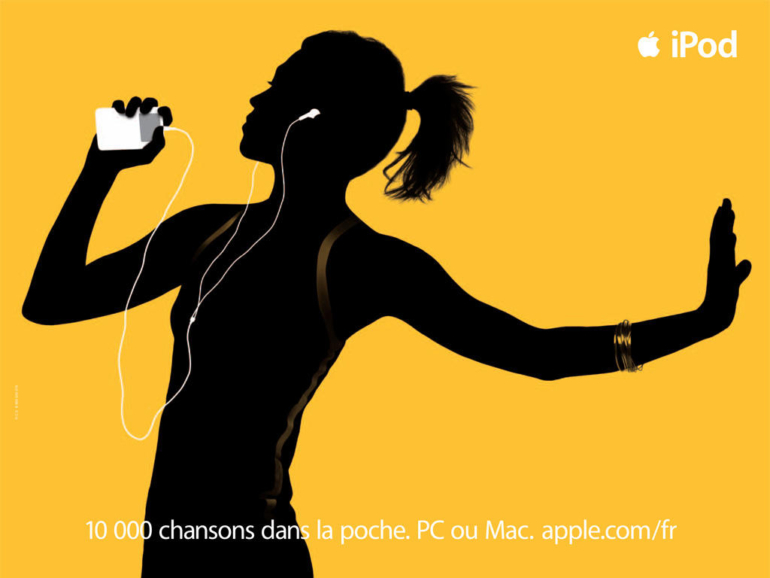
How iTunes changed music creation itself
Beyond transforming distribution, iTunes fundamentally altered how music was created and packaged. As one record executive told entertainment attorney Donald David in the early 2000s, the album formula used to be simple: “two dance songs and one humping song” with the rest being filler.
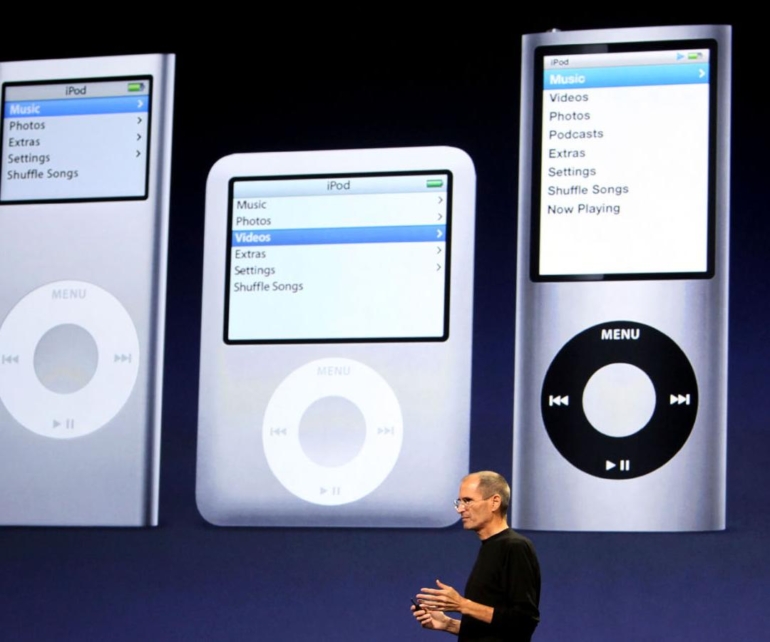
The iTunes model made this approach untenable. Suddenly, listeners could cherry-pick individual tracks, forcing artists and producers to elevate quality across entire albums. The “filler track” era was ending. This shift sparked resistance. Artists including the Beatles, Garth Brooks, Led Zeppelin, Kid Rock, and Radiohead initially refused to join the platform. Some protested album splitting; others rejected the pricing model. Most eventually relented as iTunes’ influence grew insurmountable.
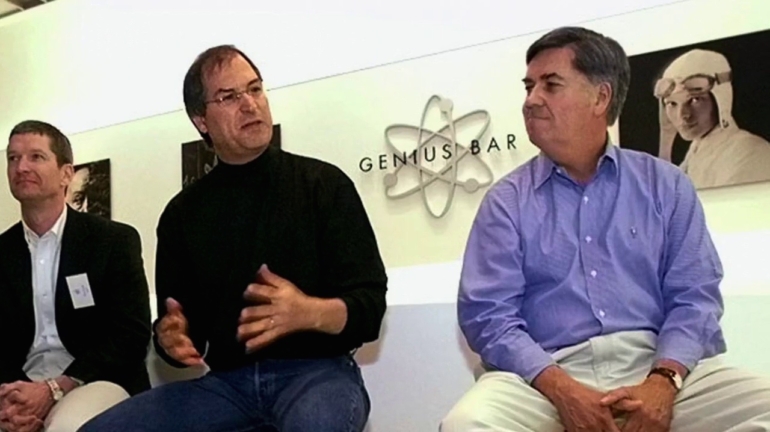
Beyond commerce: accessibility as legacy
Perhaps Jobs’ most overlooked contribution came in accessibility. As Stevie Wonder noted shortly after Jobs’ death, “His company was the first to come up with technology that made it accessible without screaming out loud ‘This is for the blind; this is for the deaf.'” Wonder, who sought out Jobs specifically to express gratitude, put it poignantly: “He has given the blind eyes to see the world, the deaf ears to hear the world.”

The streaming revolution and iTunes’ decline
The iTunes model that saved the music industry eventually faced disruption itself. As internet speeds increased and mobile data became more affordable, the download model gave way to streaming. Services like Spotify (launched 2008), followed by Apple’s own Apple Music (2015), fundamentally changed the value proposition yet again. Why own individual songs when you could access virtually everything for a monthly fee?
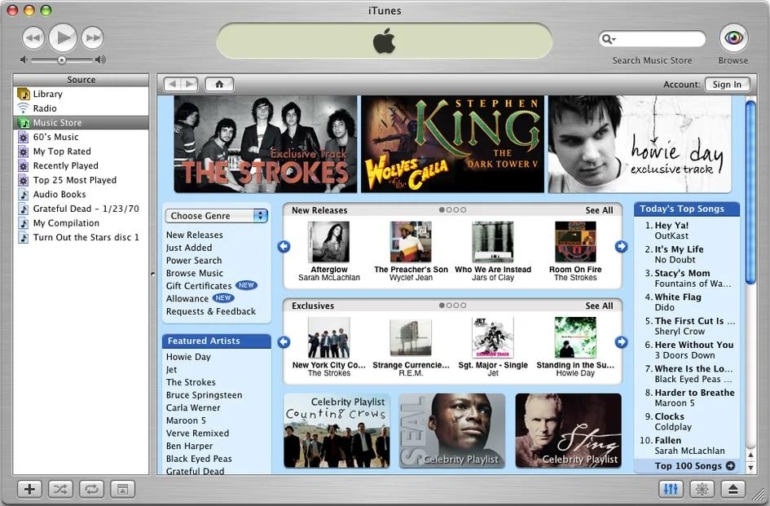
By 2019, iTunes was officially discontinued as a standalone application, split into separate Music, TV, and Podcast apps—an acknowledgment that the media landscape had evolved beyond the download era Jobs had pioneered. Yet even in its obsolescence, iTunes’ influence remains profound. The current streaming model, with its emphasis on user experience and accessibility, follows the core philosophy Jobs established: focus on creating value for listeners first, and the industry will follow.
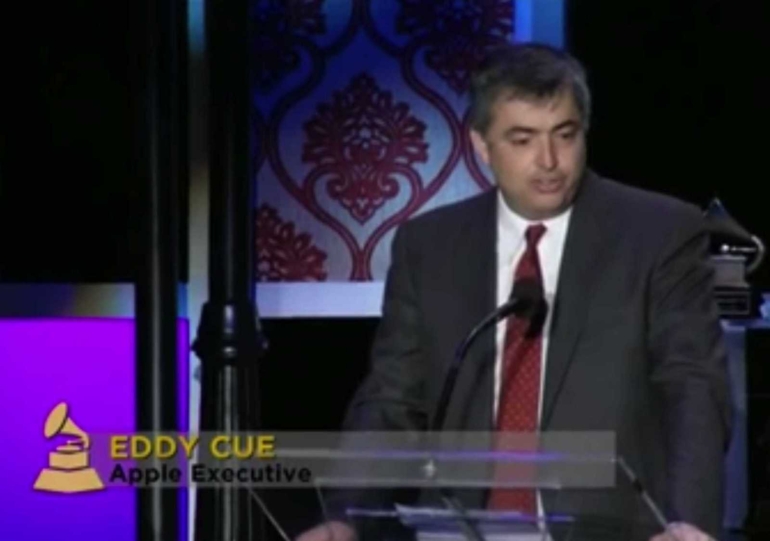
The Grammy that recognized a vision
When the Recording Academy bestowed its Trustees Award on Jobs in 2012, it wasn’t celebrating a hit song or landmark album—it was acknowledging something rarer: someone who had rewritten the fundamental relationship between music, technology, and listeners.

As U2’s Bono put it: “What made Steve Jobs truly great is that he was only interested in doing truly great things. He was bored by an easy ride or easy profit. In a world littered with dull objects, he brought the beauty of clean lines and clear thought.” The Grammy sits alongside Jobs’ more technical recognitions, including Apple’s 2002 Technical Grammy Award specifically for iTunes and iPod innovations. Together, they tell the story of a man who, without playing a single note in public, changed how billions of people experience music.
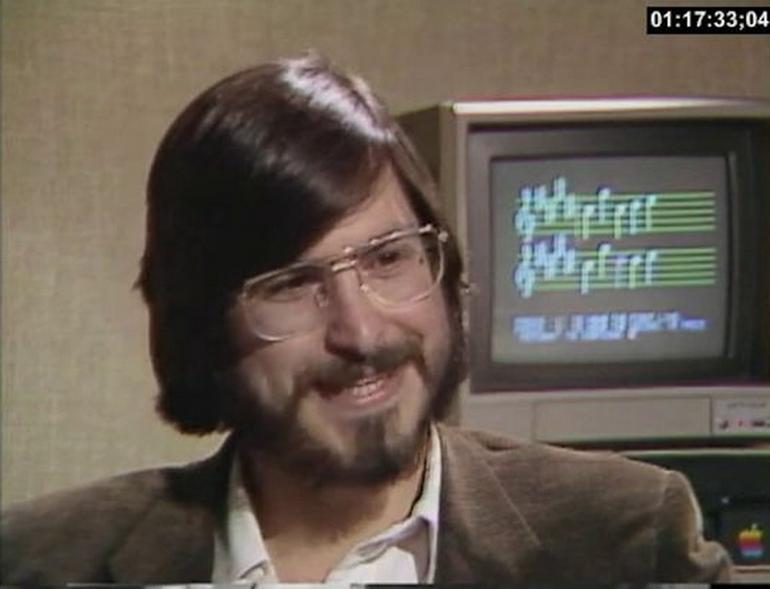
In the end, perhaps no traditional musician could have saved the music industry from its digital crisis. It took someone who understood both technology and music’s emotional power—someone who could build a bridge between Silicon Valley and artistic culture. That bridge was iTunes, and its architect remains the only Grammy winner who transformed music without ever performing it.
